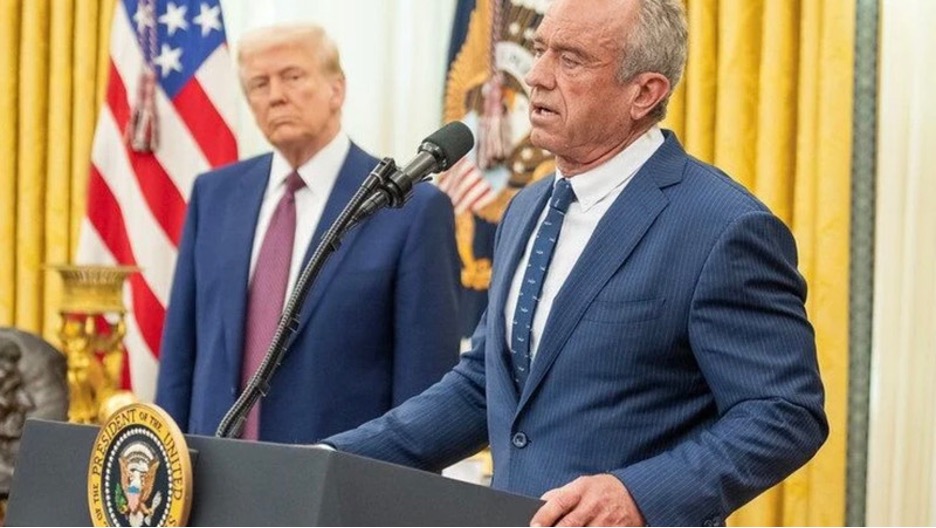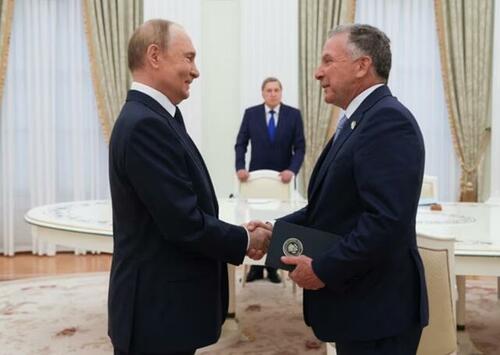Trump’s Health Tech Push Raises Privacy Red Flags – The HighWire

President Donald Trump and cabinet members announced plans for a Health Technology Ecosystem overseen by the Centers for Medicare and Medicaid Services (CMS). The ecosystem was listed on the federal register in May, and a total of 1,366 public comments were left during the 30-day comment period. The stated goal of the initiative is to streamline access to medical records and data for the benefit of patients. The government has partnered with Amazon, Oracle, Google, and OpenAI as part of the infrastructure plan. Digital privacy experts have expressed concerns about tech giants having access to a robust public health database.
President Trump attempted to quell these fears during the press conference. “The system will be entirely opt-in, and there will be no centralized government-run database, which everyone is always concerned about. I’m less concerned than anybody,” President Trump said. “People are very, very concerned about the personal records. They want to keep them very quiet, and that’s their choice. I think it’s a great thing because it will be absolutely quiet. Instead, doctors and patients will always remain in control. The benefits to millions of Americans will be enormous.”
Jeff Chester, the executive director of the nonprofit Center for Digital Democracy, said, “This scheme is an open door for the further use and monetization of sensitive and personal health information.”
One potential area of privacy concern is the use of QR codes that would allow patients to share their medical histories with healthcare professionals quickly. HHS strategic advisor Amy Gleason said that CMS wants QR codes to be part of the new digital health ecosystem. QR code phishing is a specific concern that could lead to data breaches and violate patient privacy. In May, CMS discovered a data breach potentially affecting 103,000 beneficiaries, following the identification of unauthorized accounts on medicare.gov.
The CMS press release attempts to alleviate concerns about patient privacy. It states, “All proposed plans would protect privacy, secure personal health information, and comply with HIPAA requirements.” The Office of Civil Rights (OCR) Director Paula M. Stannard said, “If an individual receives another individual’s electronic protected health information in error, generally, OCR’s primary HIPAA enforcement interests are ensuring that the affected individual and HHS receive timely HIPAA breach notification.”
On the second day of this administration, President Trump announced a $500 billion private sector company named Stargate AI, which is a creation of three top tech companies – Open AI, Soft Bank, and Oracle. Two of these companies are also partnering with CMS for the health technology ecosystem.
Oracle CEO Larry Ellison suggested the AI infrastructure can be used to help create tailored mRNA cancer vaccines. “One of the most exciting things we’re working on … is our cancer vaccine,” Ellison said. “You can do early cancer detection with a blood test, and using AI to look at the blood test, you can find the cancers that are actually seriously threatening the person. You can make that vaccine, that mRNA vaccine, you can make that robotically, again using AI, in about 48 hours.”
President Trump, HHS Secretary Robert F. Kennedy Jr., and CMS Administrator Dr. Mehmet Oz all have expressed support for the digital ecosystem initiative as a way to improve healthcare with the use of the most recent technological advancements. The voluntary aspect isn’t enough to alleviate the concerns about corporate control over health records.
“This is not patient empowerment—it’s data centralization,” independent journalist Jon Fleetwood wrote in a Substack post. “Your medical records, bloodwork, and potentially even genetic data are being funneled into a system designed for interoperability, surveillance, and AI-driven analysis. With CMS leading and Big Tech as the infrastructure, this is the domestic blueprint for the World Economic Forum’s global “Digital Health Renaissance. It is taxpayer-funded, enriches private tech monopolies, and positions the federal government as the broker of every American’s health record.”
Secretary Kennedy said he met with the Indonesian health minister to discuss how they had increased the lifespan of women by eight years and men by nine years since 1990. Kennedy said the two major innovations were disincentivizing consumption of processed foods and giving people control of their health records.
“He showed me the app that they use that everybody in Indonesia has, and it shows your height, your weight, your blood type, your BMI, your cardiac markers, your diabetes markers, your cholesterol, and any kind of individualized treatments,” Kennedy explained. “And if you go to a doctor in another town, he doesn’t do what we have to do here, which is to sit there with a clipboard and a fax machine in order to get your health records. It’s available and it allows them to give better treatment. It also allows you to make better choices over your life.”
Dr. Oz said the criminal fraud and data breach that occurred recently will be preventable through a new system Amy Brandt created that he called a “fraud war room.” He said this type of hack will be blocked with the new system. “We are building a robust and safe – I emphasize that – safe system,” Dr. Oz said. “It’s going to protect the data better than we could have imagined.”










